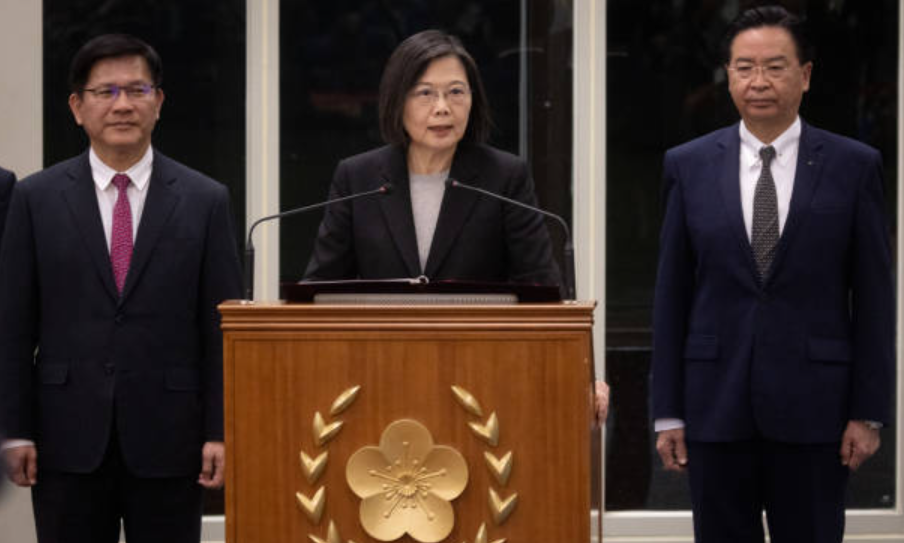President Tsai Ing-wen believes China’s leadership is dealing with internal issues, making a large-scale invasion of Taiwan unlikely at this time.
In an interview with the New York Times, Tsai highlighted China’s overwhelming internal economic, financial, and political issues as deterring factors for such a move.
The strained relationship between China and Taiwan has escalated over the past few years, with China increasing military pressure on the island, heightening concerns globally about a potential conflict.
Despite this, Tsai emphasized that the international community’s stance against war, promoting peace and stability, could dissuade China from contemplating an invasion.
Tsai and her government have consistently advocated for dialogues with China, but Beijing has continually rebuffed these attempts. China perceives Tsai and her Democratic Progressive Party (DPP) as separatists, leading to a deadlock in discussions.
China’s Stance and Criticism Towards DPP

Amidst the upcoming presidential and parliamentary elections in Taiwan scheduled for January 13, Tsai’s vice president and DPP member, Lai Ching-te, is the frontrunner according to opinion polls.
Tsai acknowledged China’s attempts to interfere in Taiwan’s elections but expressed confidence in the democracy, asserting that the Taiwanese people would make their decisions independently.
China’s Taiwan Affairs Office intensified its criticism of the DPP, labeling Taiwan’s independence as a precursor to war. The spokesperson warned that the party’s pursuit of independence would harm the interests of people on the island.
In response to Beijing’s remarks, Taiwan’s top China policy maker, Chiu Tai-san, dismissed the criticism, emphasizing that such comments showcased China’s lack of understanding of democratic politics and election processes.
The tense dynamic between China and Taiwan underscores the complexities and sensitivities
surrounding the cross-strait relationship.
President Tsai’s observations shed light on the internal challenges influencing China’s actions while emphasizing Taiwan’s commitment to democratic principles and determination to chart its own path forward, free from external coercion.


Comments are closed.